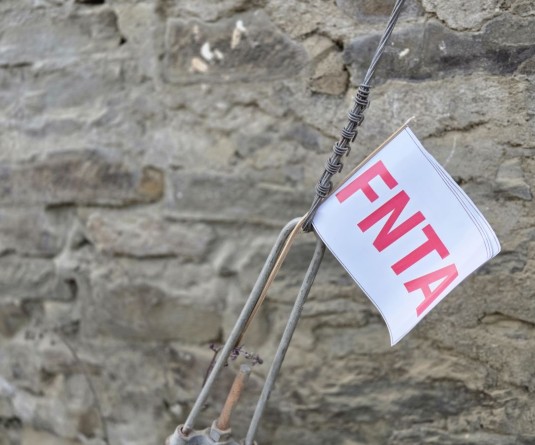
Dr. Nsungbemo Ezung
Wokha Town
In June 2024, within a month of forming a government in Odisha, Nityananada Gond, the state BJP cabinet minister, informed that the state government would consider making Odisha a liquor-free state in a phase-wise manner.
The minister cited the ruining of lives and people leading to distress by alcohol/liquor as the reasons for the need to restrict, if not to make the state free from the menace of alcohol. He also asserted that the state could not “encourage liquor sale fearing revenue loss” and rather should acknowledge the fact that the “society is being polluted due to liquor addiction”. If the concern raised by Nityananada Gond on the problems of liquor in the state has served any indication, then it is that the state of Odisha which had never seen liquor prohibition or restriction in the past is still not free or safe from the same, and rather liquor remains the major reason that brought unimaginable suffering and devastation to many homes and families in the state.
If a popular Hindu leader from a Hindi heartland state then repudiates liquor and liquor business publicly and takes a firm position to work for legislation on banning liquor, there is no reason why the state of Nagaland, a Christian state, should back off from the prohibition’s legislation that is already in place.
Some sections of the Nagas always love to assume that if there is no liquor prohibition law in the state of Nagaland then the free flow of only the good and unadulterated liquor will be made available in the state through proper means and the state will become free from the hitherto problem of the menace of consuming adulterated liquors that are obtained through a syndicate and black markets, and no Naga would suffer from any alcohol-related issues. If this holds true, then the people of Odisha will never feel the need to restrict the alcohol sale in the state, since liquor is legal and freely available. The state of Bihar, which banned alcohol only in 2016, will never felt the need to outlaw liquor in the state if legalizing of sale of unadulterated liquor in the state did not create any problem in the state.
Why has liquor that has been legal in Odisha all these decades and the free-flow of all kinds of “best” and unadulterated wines and liquors in the state did not still solve the problem of alcohol menace in the state? And when the state of Mizoram after repealing the liquor prohibition law in the state in 2014 retracted back again to the option of total liquor prohibition in 2019 by acknowledging that the repealing of the liquor prohibition did not do anything good for the state, will it be wise on the part of the Nagas to assume that the doing away of the liquor prohibition law in the state of Nagaland that has been enforced since 1989 will do something good for the Nagas. Can there be any guarantee that legalizing liquor business in the state and making liquor freely available all over the state will be in the best interest of the people of the state?
It is unfortunate to note that many Nagas, including sections of elected members and government officials, used to argue to relate the issue of “revenue” of the state to the Nagaland Liquor Total Prohibition (NLTP) Act on the perceived ground that the prohibition law is doing away with the prospect of generating huge revenue in the state. The argument speaks as though the wisdom of the Naga people and state government is too limited to think about the scope of generating income beyond the liquor business. After all, selling liquor is not the only source of income/revenue for anyone, nay the state government. It’s interesting to consider how many sources/avenues the Government of Nagaland has created for generating revenues during the last more than five decades since the creation of the state of Nagaland that the section of Nagas always loves to keep on harping on the same rhetoric of “loss of revenue” because of the liquor prohibition. The state government cannot project itself to be helpless in implementing a law that concerns the interest of the people of the state. Failures to implement the law will only show the inability of the state government to provide good governance to its citizens and will lose the moral right to exercise authority over the people.
While it is an undesirable reality that there is a rise in the black market/illegal liquor business in the state, it cannot be made as the basis to do away with the anti-liquor law. The larger interest of the people cannot be sacrificed just because of the prevalence of incidences such as black marketing against the wishes and will of the people. There are lawbreakers, but that should not be the basis for doing away with the law; corruption may be there always, but that does not mean corruption should be legalized. There may be loopholes while implementing the liquor law but those loopholes should not serve as the reason to do away the law. The conscience of the Naga society favours liquor prohibition, and that should be enough to let the prohibition law prevail.
Nagas must remember that from the day the Naga homeland was forcefully colonized by India and the popular resistance movement was started by the Nagas, ‘liquor’ was one of the main deceptive elements used by India to spoil the Nagas, dilute the Naga society and distract the Nagas’ cause. At the time when no amount of force or coercion could convince the Nagas to gave up their popular movement for sovereignty, Gen. K. S. Thimmaya, former Chief of the Indian Army who then conceded to Nehru that “the Naga issue is a political problem and army force alone cannot suppress the Naga political problem”, conceived a tactical strategy called “W-3 Operation” (Wine, Women and Wealth) to distract the Nagas from pursuing and achieving their desired political goal. Indian currency began to flow and the liquor market boomed in Nagaland which eventually spoiled many Nagas. The landmark legislation on liquor prohibition in 1989 by the Nagaland Legislative Assembly was a befitting response/counter-strategy to New Delhi’s deceptive and ill-device strategy directed against the Nagas. And the Nagas of this generation must ensure that they would never succumb to any form of pressure to do away with the prohibition law, failing which it will further expose the Nagas, especially the young and vulnerable ones, to the evils of liquors.
It would be disastrous for the Nagas to assume that the Utopian moment for the Nagas would come when the state of Nagaland finally do away with the NLTP Act and makes Nagaland a place where liquor would be freely available. When the corrupt political system in the state had already spoiled and corrupted the minds of once independent, hardworking and disciplined Nagas, and Nagas had already developed a slave and dependant mentality, how then the Naga folks especially the younger generations would respond to such a situation. The most vulnerable victims of the possible post-NLTP Act will be the Naga youths who have just been exposed to the world and whose futures are at stake. Before Nagas think about emancipation from the NLTP Act, they should think about the disastrous effect on the Naga society if they had to choose to become a slave to liquor.
The call for the review of the NLPT Act, whether it is for relaxation/partial relaxation, is not a solution to the liquor-related problems that Nagas at large face today. The solution lies in preaching boldly against the evil of liquor and abstinence from it, and genuine and sincere efforts from all the Naga stakeholders to make Nagaland a liquor-free state.
P.S: As the Nagaland Legislative Assembly prepares to deliberate on the future of the NLTP Act, I pray and hope that all the 60 elected legislators, who are representing the people of the state, will vote against any government’s proposal to review or repeal the NLTP Act. I also hope that Nagaland Churches and Civil Society Organizations from all over the state will petition their respective local MLAs to vote against any proposal from the state government to legalize liquor sales in the state.





